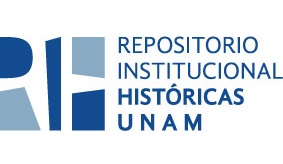Consulte el registro sencillo del ítem
Allende el mar: narrativas del yo y la construcción de la otredad americana desde la experiencia sensible de mujeres españolas olvidadas (1521-1600)
| dc.contributor.author | Roselló Soberón, Estela |
| dc.coverage.temporal | 1521-1600 |
| dc.date.accessioned | 04/07/2024 19:20 |
| dc.date.available | 04/07/2024 19:20 |
| dc.date.issued | 2023 |
| dc.identifier.issn | 0212-4408 |
| dc.identifier.uri | http://hdl.handle.net/20.500.12525/3142 |
| dc.description.abstract | This article traces the sensitive universe with which peninsular women of the Hispanic Monarchy of the sixteenth, seventeenth and eighteenth centuries constructed the American otherness. Based on the analysis of several letters from the collection compiled by Rocío Sánchez Rubio and Isabel Testón Núñez in El hilo que nos une, the text concentrates on reconstructing the emotional experience of many Andalusian, Castilian and Extremaduran women who saw their men depart for the New World during the sixteenth, seventeenth and eighteenth centuries without return. The purpose of this analysis is to approach the way in which this female community signified those distant lands to turn them into an imaginary place that became a reality based on emotions such as pain, resentment, longing, anger, abandonment, loneliness, and desolation. The women who were left without their men on one side of the sea gave life, in their minds, to the unknown Indian reality based on everything they experienced as a consequence of that difficult separation. Thus, for many of them, America was the sensitive and imaginary geography where those kingdoms of wealth, abundance, opportunities, and lust that had attracted their husbands, fathers, brothers, and sons were located, and the place where those "others", for whom they had been replaced forever, lived. |
| dc.description.abstract | Este artículo rastrea el universo sensible con que las mujeres peninsulares de la Monarquía Hispánica de los siglos XVI, XVII y XVIII construyeron la otredad americana. A partir del análisis de varias cartas de la colección compilada por Rocío Sánchez Rubio e Isabel Testón Núñez en El hilo que nos une, el texto se concentra en reconstruir la experiencia emocional de muchas mujeres andaluzas, castellanas y extremeñas que durante los siglos XVI, XVII y XVIII vieron partir rumbo al Nuevo Mundo a sus hombres sin regreso. El propósito de dicho análisis es acercarse a la manera en que dicha comunidad femenina significó aquellas tierras lejanas para convertirlas en un lugar imaginario que cobraba realidad a partir de emociones como el dolor, el resentimiento, la añoranza, el enojo, el abandono, la soledad y la desolación. Y es que las mujeres que se quedaban sin sus hombres de aquel lado del mar dieron vida, en sus mentes, a la realidad indiana desconocida a partir de todo aquello que experimentaban como consecuencia de aquella difícil separación. Así, para muchas de ellas, América era la geografía sensible e imaginaria donde se localizaban esos reinos de riqueza, abundancia, oportunidades y lujuria que habían atraído a sus maridos, padres, hermanos e hijos y donde habitaban aquellas “otras” por quienes éstos las habían sustituido para siempre. |
| dc.format | |
| dc.format.extent | 720 KB |
| dc.format.extent | p.5-28 |
| dc.language.iso | spa |
| dc.publisher | Universidad de Sevilla |
| dc.relation.ispartof | https://editorial.us.es/es/numero-50-2023 |
| dc.rights.uri | http://creativecommons.org/licenses/by-nc-nd/4.0 |
| dc.source | Temas Americanistas , 50 (2023). https://editorial.us.es/es/numero-50-2023 |
| dc.title | Allende el mar: narrativas del yo y la construcción de la otredad americana desde la experiencia sensible de mujeres españolas olvidadas (1521-1600) |
| dc.type | Artículo |
| dcterms.bibliographicCitation | Roselló Soberón, Estela. "Allende el mar: narrativas del yo y la construcción de la otredad americana desde la experiencia sensible de mujeres españolas olvidadas (1521-1600)". Temas Americanistas , (2023): p.5-28. http://hdl.handle.net/20.500.12525/3142 |
| dc.rights.holder | Universidad de Sevilla |
| dc.coverage.placeofpublication | España |
| dc.relation.number | 50 |
| dc.subject.keywords | historia de las emociones |
| dc.subject.keywords | historia de las mujeres |
| dc.subject.keywords | otredad |
| dc.subject.keywords | experiencia |
| dc.subject.keywords | América |
| dc.subject.keywords | Monarquía Hispánica |
| dc.subject.keywords | Edad Moderna |
| dc.type.publicationversion | publishedVersion |
| dc.audience | students |
| dc.audience | researchers |
| dc.audience | teachers |
| dc.rights.access | openAccess |
| dc.relation.alternativeidentifier | https://doi.org/10.12795/Temas-Americanistas.2023.i50.02 |
Ficheros en el ítem
Este ítem aparece en la(s) siguiente(s) colección(ones)
Excepto si se señala otra cosa, la licencia del ítem se describe como http://creativecommons.org/licenses/by-nc-nd/4.0




